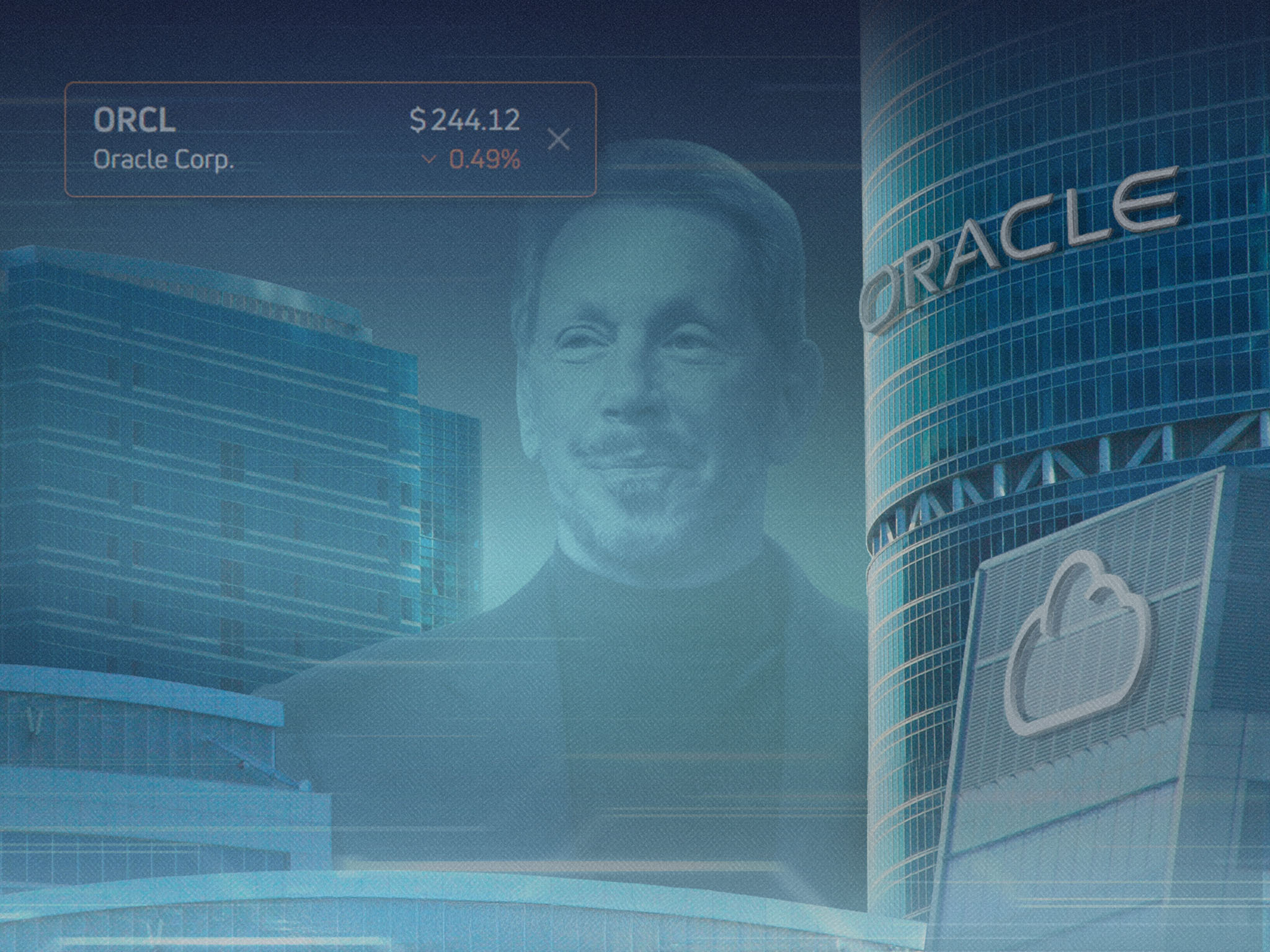Known for its databases, Oracle (NYSE: ORCL) is attempting to develop into a major player in the artificial intelligence industry by negotiating deals to purchase the highly sought after chips on the market.
Oracle is now in a race with other major AI startups that are backed by major venture capital firms and software giants who have an advantage due to their head start by investing in the industry sooner and with larger cash reserves. But the company has transformed into a popular cloud-computing provider for AI developers like OpenAI.
Buying the much-needed chips from Nvidia (NASDAQ: NVDA) isn’t easy nor cheap. But Oracle co-founder and chief technology officer Larry Ellison predicted the need and last September he revealed at an analysts meeting that he and Elon Musk, the world’s richest man, persuaded Nvidia CEO Jensen Huang to sell them the company’s chips during a Palo Alto, California dinner.
Even though Ellison himself is a billionaire, worth $262 billion as of July 18, according to the Bloomberg Billionaires Index, he said he still “begged” Huang to give them more GPUs, which can complete mathematical calculations at a very high speed for machine learning, gaming and content creation.
The outcome of the dinner was a deal that is beneficial for Oracle. “It went ok. I mean, it worked,” Ellison said in news reports.
Nvidia’s chips are not just popular among AI and other tech companies, the Santa Clara, California company controls 80% of the market for AI chips and manufactures the chips that AI companies want to use so they can rise to the top and beat their competitors.
Ellison did not attain his wealth by avoiding risks and is not afraid of competition. He told Fortune that the company’s role in the AI industry is akin to competing in a Formula 1 race.
He brought Musk, Tesla’s CEO, along to the meeting with Huang because the automotive company also depends on the GPUs made by Nvidia for the assisted driving technology that is used in the company’s vehicles.
Ellison was also a long-time shareholder of Tesla and his shares totaled 1.5% of the company, according to the auto manufacturer’s 2022 proxy statement. But the billionaire, who ranks second on the Bloomberg’s Billionaires Index behind Elon Musk, resigned from Tesla’s board in 2022. The number of shares of Tesla owned by Ellison has not appeared on proxy statements since 2022. Ellison was one of the largest financial supporters of Musk’s bid to purchase social media platform X, which was previously called Twitter.
Now Ellison is placing his bet back with Oracle, the company he founded 48 years ago and where the majority of his vast fortune comes from since he still holds over 40% of the company. The company shelled out a whopping $21.2 billion in capital expenditures during its latest fiscal year, which pushed Oracle into negative annual free cash flow for the first time since 1990, according to S&P Global Market Intelligence’s data.
Microsoft’s annual capital expenditure budget is almost four times than what Oracle spent recently, but Microsoft’s revenue is over four times the amount of Oracle’s yearly revenue. But Oracle does not have to rely on growth in its AI business for revenue. The software company’s OCI public cloud business is in high demand from corporations seeking cloud services.
Oracle also negotiated partnerships with tech giants such as Amazon, Google and Microsoft — its databases run the clouds of the three software companies. Microsoft’s Bing AI chatbot also operates on Oracle’s servers.
Some analysts have now given Oracle a buy rating, including Brent Bracelin of Piper Sandler who mentioned that 27% of chief information officers plan to increase their budgets on OCI, compared to only 18% six months ago, according to a recent survey.
Wall Street is a fan of Oracle’s move into AI, which helps companies analyze data and make recommendations. Two-thirds of analysts gave Oracle’s stock a buy rating. Three years ago less than one in three analysts gave it that rating.
Shares of the stock shot up by 42% during the past six months and 77.8% in the past year. Oracle reported during its latest fiscal year that ends in May that its remaining performance obligations rose 41% to $138 billion while Oracle’s cloud infrastructure consumption revenue increased 62%.
Oracle also signed a deal in June that will generate $30 billion a year with one undisclosed customer, according to regulatory filings. The deal starts in fiscal 2028 and the revenue would be more than the company’s entire cloud infrastructure business.
The company is also making investments by spending $3 billion for AI and cloud infrastructure – $2 billion in Germany and $1 billion in the Netherlands.
A powerhouse in the software industry, Ellison is no stranger to taking on risks and his latest wager could prove to be extremely rewarding to Oracle’s shareholders.




Comments